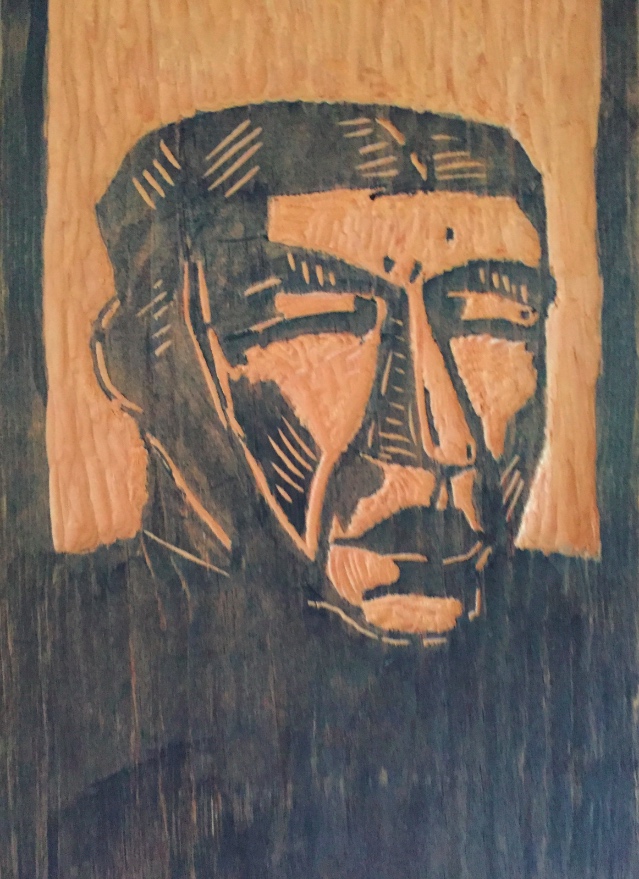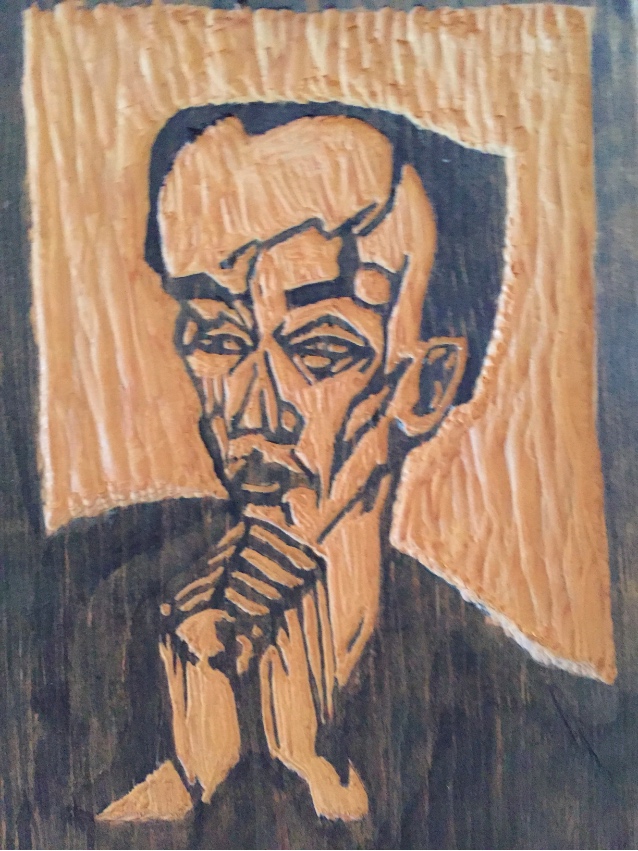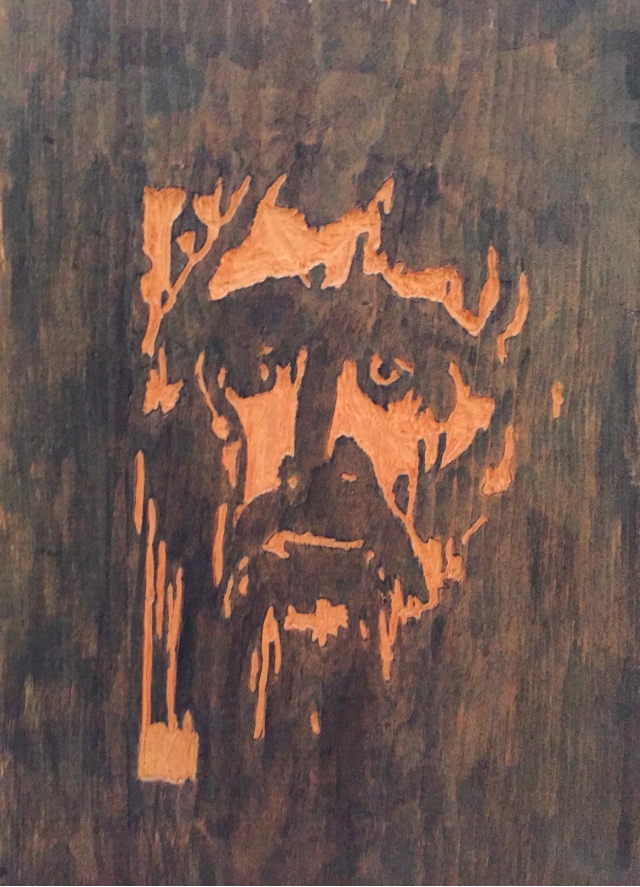I recently asked The Internet to help me identify these woodcuts. My dad made them in his early twenties, when he was bedridden with a severely broken leg.
My dad made these wood burnings in 1964. Anyone recognize who these are supposed to be? (Ok, Sherlock is obvious) pic.twitter.com/GksdGqbEUe
— Audrey Watters (@audreywatters) July 12, 2015I recognized one – Sherlock Holmes – but I needed help identifying the others, and I was surprised with what I learned.
I don’t recall my dad having any particular interest in German Expressionism, the style of three of these. I imagine now that there must have been a book at my grandparents’ house from which he copied some of these: the works of Karl Schmidt Rottluff, Erich Heckel, Emil Nolde.

Based on "Mutter" by Karl Schmidt Rottluff
Was he attracted to Die Brücke – its emotion, its violence, its primitivism? Or was he simply copying woodcuts as he made his own? I don’t know.
I’d remembered these pieces of art, which hung in my grandparents’ house before they hung in my dad’s, quite differently than what they actually portray. I was certain, for example, the set contained an etching of Boris Karloff as Frankenstein’s monster and one of Lon Chaney. In part, it’s my failed recollection of what my dad had drawn; I wonder if he didn’t really recollect who the subjects were either.

Based on "Portrait of a Man" by Erich Heckel
And this is what has stuck with me. (Well, the pictures have too. I didn’t keep much from my dad’s house, but I did bring these six woodcuts home with me.)
At one point his life, my dad wanted to be an artist of some sort – a cartoonist perhaps, or a musician. It was a dream of a teen, no doubt. But that’s the age when his brother had left home to become a writer; instead my dad stayed to work at the family grocery store. He was nevertheless an elaborate storyteller – it’s likely my dad did invent a tale about what he’d carved in these pictures.
Why I remember these stories and woodcuts centered on the Universal Monsters, I don’t know but I can guess.

Based on "The Prophet" by Emil Nolde
Sometimes we invent stories to cope; sometimes we invent stories to forget; sometimes the truth gets so foggy, imagination and invention are all that’s left. Sometimes we see monsters; and sometimes there really are monsters there.